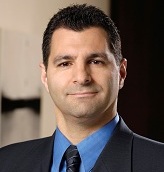Rodney Alves, Partner at Alves, Videla Business Strategies
BayBrazil: As Brazil continues to grow, more U.S. companies are planning to enter that market or expand their presence. What are the main legal aspects companies should be aware of?
Rodney Alves: When it comes to do business overseas, it is always important to learn the basic legal aspects of the country. Brazil has a fairly well structured legal system that has evolved over the years and continues to adapt itself to the modern needs and legal environments. Although each industry has its own particular legal requirements and important aspects to be concerned with, generally speaking labor, tax and IP are the most common concerns for a new comer in Brazil. But it really depends on the industry and the business itself, as every case is an unique case. For example, an investor acquiring real estate in Brazil for the purpose of renting or leasing may not be too preoccupied with labor or IP issues, while his eyes will be focused on Environmental related situations or, as most recently raised, ownership related discussions. No matter what industry though, probably the most critical legal issue to be aware of is the fact that the judicial system in Brazil is usually ineffective due to a myriad of appeals and legal tools as well as an overwhelming volume of cases each judge has to deal with, which causes a very painful, long litigation process.
BayBrazil: In which Brazilian city is it easiest and fasted to start a business?
Rodney Alves: Brazil is a vast country and this is certainly a pertinent question. The answer is: it depends. São Paulo is certainly the major hub for businesses, with the infrastructure already in place for any kind of business. On the other hand, São Paulo faces the same challenges any major megalopolis in the world does: horrible traffic, high living cost, competitive market, security. Rio de Janeiro is the place to go when it comes to certain businesses and presents an attractive option with its beautiful landscape, while cities like Belo Horizonte, Curitiba and others are growing rapidly and offer a less expensive move in costs as well as a less competitive environment. However, if you are looking for a place for a resort you may consider Northern cities. Available labor is also to be considered, as many industries require specific knowledge and training only found in certain areas of the country.
BayBrazil: What is the average time and cost of launching a business in Brazil?
Rodney Alves: Here is another good example of it depends answer. Depending on the type of business organization one chooses, as well as the specific requirements of the industry, time for launching may vary from a week to months. Incorporating in Brazil is usually not an issue and most States have reasonable turn around at their “Juntas Comerciais”, a corporations register office similar to the Secretary of State’s Corporations Department here in the US. The most common delay problems come from specific permits, licenses and authorizations needed to operate the business in Brazil. From Brazilian Central Bank requirements to city permits, the process can cost many months and it is advisable to seek appropriate legal assistance early on. Cost of launching will also depend on where the business will be located, but the initial legal cost of incorporating is not significant.
BayBrazil: What type of taxes does a foreign company pay in Brazil?
Rodney Alves: Brazil is famous as a country with many taxes. As a general rule, foreign companies doing business in Brazil will pay the same taxes as a Brazilian company, which includes federal, state and municipal taxes. From income tax, import duties, export tax, social contributions, IPI (tax over manufactured products/goods), ICMS (similar to VAT or sales tax), to service tax, Brazil has it all. It is important to mention that Brazil currently does not have a tax treaty with the US to avoid double taxation, which makes the assistance of the appropriate professionals a must.
BayBrazil: How easy is to hire employees in Brazil?
Rodney Alves: Some industries are well served in terms of available labor force, while others are more competitive. As a general rule, businesses requiring less technical training have a large pool to choose from. The more complex, technical or sophisticated it gets, the more competitive the market is. Also, certain regions have a more qualified pool to certain industries, typically because of the local trade, but also because of incentives and benefits. For example, although the Northeast is a more tourism oriented region, certain cities have a highly qualified IT pool of professionals, fruit of long term investments in the region. As far as the legal hurdles go, the most common concern is the involved costs, since Brazil has a very protective labor laws and judicial system as well as several indirect taxes, benefits and contributions that significantly increase the payroll.
BayBrazil: Tell us about Brazil’s legislation on intellectual property. Are laws being enforced?
Rodney Alves: The Brazilian IP laws are not recent. The Brazilian Penal Code from 1940 had already included an entire session to protect IP rights, declaring it a crime not to respect them. Then, back on 1971, the first Brazilian Intellectual Property Code was put in place, as a response to the WIPO establishment in 1967. The current Brazilian IP Code is relatively recent as it dates 1996, and encompasses several adjustments to the new reality of the IP in the world. With respect to the enforcement of the laws, Brazil has improved significantly over the course of the past ten to fifteen years, but two problems remain, corruption and lack of adequate judicial system, as I mentioned above.
BayBrazil: Can foreign companies own land in Brazil?
Rodney Alves: This is an ongoing discussion in Brazil. At this point, as it has been for years, there were no impediments only certain limitations on land acquisition by foreigners in Brazil, mainly on certain areas and under certain circumstances. However, recently discussions have emerged due to the significant amount of land acquisition by foreigners that have occurred lately. The key argument here seems to be sovereignty. The Brazilian Congress is exactly debating whether they would impose limits, forbid or allow the acquisitions to continue. There is even a chance that they would revert previous acquisitions by foreigners, even though this seems to be have a slight chance to be chosen. The debate was recently heated when a decision by the CNJ (National Justice Council) in July declared that companies controlled by foreigners are allowed to own rural land in Brazil. However, because this is a year of elections in Brazil, the likelihood of having this issue settled is reduced.
BayBrazil: The Brazilian Government announced massive investments in infrastructure projects in preparation for the 2014 World Cup and the 2016 Olympic games. What is your advice for U.S. companies interested in those projects?
Rodney Alves: Both events have already brought a long list of benefits to Brazil. It is undisputed that the country’s business landscape is changing and will change forever. The opportunities are immense and the momentum is already set. If there is a time to do business with Brazil, this is it. However, as it happens everywhere, together with the opportunities there are challenges. In spite of the fact that Brazil is becoming more reliable than ever, more attractive than ever, more interesting than ever, there will be always someone facing difficult situations. I have seen this happens many times and even sophisticated foreigners take the hit when not duly aware and prepared. Usually, these losses are linked to lack of adequate preparation, study, professional assistance and knowledge of the country and the opportunity. My advice is to find your way down there, but avoid getting caught in the wrong net, do the homework, hire the appropriate professional assistance, make an informed decision, associate with the right people and harvest the fruits.








